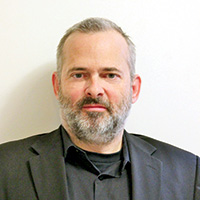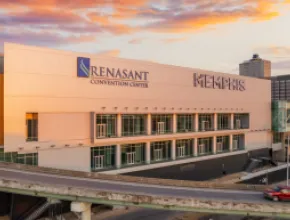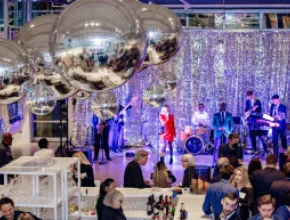Attracting some 27 million annual visitors, northeastern Pennsylvania’s mountainous Pocono region is most familiar for the four-season recreational opportunities afforded by its lakes, waterfalls and other natural assets.
Tourism launched the region in the 1800s and remains its lifeblood, the group market included.
Meetings magnets include Mohegan Sun Pocono, the Inn at Pocono Manor, Woodloch Resort, Split Rock Resort and Skytop Lodge.
Add to that the region’s waterpark trio: Camelback Resort, Great Wolf Lodge and Kalahari Resorts and Conventions, which is targeting spring 2019 for the addition of 134,000 square feet of convention space to its existing 100,000-square-foot facility.
Less known, at least outside the area, is the region’s global preeminence in keeping humanity healthy.
In the early 1890s, cholera-stricken vaccine researcher Richard Slee retreated to the Swiftwater Inn in the Poconos to recover. In 1897, he founded the Pocono Biological Laboratories to produce the Pasteur Institute’s groundbreaking smallpox vaccine. Last year, the facility, part of the vaccines division of French global pharmaceutical giant Sanofi, celebrated its 120th anniversary.
Tourism has helped attract other sector-spanning enterprises to the pro-business Poconos.
“Many of our best industries are here because their owners first experienced the area as vacationers,” said Chuck Leonard, executive director of the Pocono Mountains Economic Development Corporation, in a 2016 Keystone Edge feature.
Across the Keystone State, industrial-strength connections, past and present, fortify group locales.
Eastern Excellence
Philadelphia, America’s first capital (1790 to 1800) and first World Heritage City (2015), is a seat of arts and culture, healthcare, engineering and more. Milestones include the nation’s first stock exchange (1790) and first medical school (1765).
Group-capable heirlooms include the Pennsylvania Academy of the Fine Arts (1805), the nation’s first art school and museum; Walnut Street Theater (1809), the nation’s oldest theater; and Franklin Institute Science Museum (1845), the first professional organization of mechanical engineers and draftsmen.
With the singular Mutter Museum of The College of Physicians of Philadelphia among other medical-related legacy venues, the Philadelphia CVB pioneered leveraging local knowledge capital for groups.
Three business development divisions—PHL Life Sciences, PHL Sports and PHL Diversity—attract significant meetings bookings in these verticals while also delivering enhanced benefits such as speakers and potential strategic partners.
Along with sports and international tourism, the Life Sciences industry is also a key driver for neighboring Valley Forge and Montgomery County.
“Headquarters and regional offices include Merck, GlaxoSmithKline (GSK), CSL Behring and TEVA,” said Lisa Karl, vice president of sales and strategic partnerships for the Valley Forge Tourism & Convention Board. “Events in this sector typically require large meeting spaces with multiple breakout rooms, which we offer through venues such as the Normandy Farm Hotel and Conference Center, and Chubb Conference Center and Hotel.
“For their private group dining needs, our high supply of restaurants includes Seasons 52 and Maggiano’s Little Italy, both in King of Prussia, and Dettera Restaurant & Wine Bar in Ambler,” she added.
Bucks County, also part of Philadelphia’s Countryside Region, offers superb showcases of early American manufacturing at the Mercer Museum, Fonthill Castle and still-active Moravian Pottery and Tile Works.
Forming the “Mercer Mile” in historic Doylestown, this trio of ingenuously constructed concrete buildings from archaeologist, collector and tile-maker Henry Mercer are wondrous to behold.
Arrayed around the multilevel Central Court of his namesake museum, cribs, kitchen utensils, surgical equipment, wagon wheels, whaling vessels and other artifacts spanning the American pre-Industrial experience create a magical ambiance for tours and events.
Tours of Fonthill Castle, his home, are also a must.
Lehigh Valley legacies include the once mighty Bethlehem Steel. Lining the walkable 1907 Hoover-Mason Trestle, the plant’s surviving blast furnaces and other structures live on as SteelStacks, a 10-acre event-capable arts and entertainment campus adjacent to Sands Casino Resort Bethlehem.
Offering 282 upscale rooms, this integrated resort features 12,000 square feet of convention space and a 14,000-square-foot Event Center among its amenities.
In the riverside city of Easton, group draws include the Crayola factory. World headquarters for Mack Trucks, Allentown features the group-capable America on Wheels museum.
Central Connections
Amish heritage, deep agricultural roots and legacies including furniture-making, tobacco and trains are among the ties that bind in Lancaster County.
“From picturesque farm vistas to city streets bustling with creative firms, meeting and event spaces throughout Lancaster County show off both its industrial heritage and current economy in fabulous and unexpected ways,” said Discover Lancaster spokesperson Joel Cliff.
In Lancaster City’s vibrant National Historic District downtown, the Lancaster County Convention Center and adjoining 299-room Lancaster Marriott at Penn Square seamlessly incorporate the 110-year-old Beaux-Arts facade of the landmark former Watt & Shand department store.
Together, the properties offer 90,000 square feet of meeting space.
Dating to the 1730s, Lancaster Central Market is America’s oldest farmers market building.
For smaller gatherings, the boutique 63-room Lancaster Arts Hotel, offering 1,100-plus square feet of meeting space, originated in 1881 as a warehouse, successively storing tobacco, paper, twine and electronics over time. Offering 9,750 square feet of space, the 77-room Cork Factory Hotel comprises buildings once housing the historic Armstrong Cork and Kerr Glass companies.
The area’s main Amish attractions—the Amish Experience, Amish Farm & House, and Amish Village—faithfully interpret the Plain community and customs such as farming and furniture and quilt making.
Interactive demonstrations from tinsmiths, blacksmiths and tavern keepers in period costume authentically reveal early Pennsylvania German life (1740-1940) at the event-capable Landis Valley Village & Farm Museum.
The Smithsonian-affiliated Railroad Museum of Pennsylvania, in Strasburg, showcases the Commonwealth’s rich railroad history (American railroading began in the Pocono Mountains, where the first steam locomotive ran in 1829). Rental spaces include the 100,000-square-foot Main Exhibit Hall and its collection of historic locomotives and vintage railroad cars.
Trains are also celebrated in historic Altoona. With an event-capable museum, the still-active Horseshoe Curve National Historic Landmark (1854) is an engineering marvel for the ages.
Pennsylvania is a seat of education. Chartered in 1855, Penn State is among some 500 Keystone colleges and universities. The main State College campus features two top-class group venues, the Penn Stater Conference Center Hotel and Nittany Lion Inn.
Turning 90 last year, Hershey Entertainment & Resorts, incorporating Hershey Meetings, is another sweet spot for groups. Offering 100,000-plus square feet of space, 665-room Hershey Lodge is Pennsylvania’s largest convention resort. Additional venues, including the historic 276-room The Hotel Hershey (1933), with 25,000 square feet of space, create one of the East Coast’s most dynamic meetings destinations.
In Pennsylvania Dutch Country, York County, the “Factory Tour Capital of the World,” tempts groups with visits to famed brands ranging from Harley-Davidson to Utz Quality Foods, chip-makers since 1921, and the Sturgis Pretzel House, which first commercialized the pretzel in 1861.
Western Wows
For two centuries, starting with its bituminous coal industry in 1760, Pittsburgh was a global industrial powerhouse, its apex years celebrated as the “Golden Age of King Coal, Queen Coke and Princess Steel.”
It’s also a paragon of American engineering ingenuity, featuring 90 neighborhoods, 446 bridges and many gravity-defying streets masterfully woven into a mountain-hemmed valley of escarpments, slopes and hollows.
Within this framework, Pittsburgh has forged a distinct post-steel economy around tourism and conventions, arts and culture, food, sustainability and technology. Apple, Facebook, Google and Uber, testing its self-driving cars here, have set up shop.
Carnegie Mellon University graduates and other homegrown talent, along with Silicon Valley transplants, are reversing Pittsburgh’s decades-long brain drain and the well-publicized diaspora of its citizens.
From events at the four Carnegie Museums of Pittsburgh—Carnegie Museums of Art and Natural History, The Andy Warhol Museum and Carnegie Science Center—to seasonal guided tours led by former ironworkers at the National Historic Landmark Carrie Blast Furnaces in nearby Rankin, groups can experience Pittsburgh’s vibrancy all over town.
The city’s remarkable renaissance includes green tech and sustainability.
Pittsburgh’s green tipping point came in 2003 when the David L. Lawrence Convention Center, achieving LEED Gold certification, became the world’s first “green” convention center.
Built on a riverfront brownfield site, the venue went LEED Platinum in 2012, making it the world’s first dual LEED convention facility.
Unveiled at last month’s Pittsburgh Home and Garden Show, the venue and hospitality partner Levy teamed up with North Country Brewing Company to create “Roof Top Hops,” an American IPA using hops grown in the venue’s rooftop garden.
Located in Slippery Rock, Pa., the brewery is among many group draws in Butler County. Unfolding north of Pittsburgh, this scenic destination, birthplace of the Jeep, is another “green” light for groups.
“Just 20 minutes north of downtown Pittsburgh in bustling Cranberry Township, the state-of-the-art, LEED-certified RLA Learning and Conference Center combines a corporate atmosphere with technology-based conference venue,” said Jack Cohen, president of the Butler County Tourism & Convention Bureau.
“Featuring an award-winning design, RLA embraces efficiency, and we look forward to hosting more meetings and events there," he added.
The Pittsburgh Penguins, winners of the last two Stanley Cup championships, train at the UPMC Lemieux Sports Complex in Cranberry Township. This event-capable, multifunctional venue attracts thousands of visitors from around the country and has helped boost the local sports economy, organized under the new Butler County Sports Commission.
Jeep heritage is celebrated each June with the annual Bantam Jeep Heritage Festival at Cooper’s Lake. Thousands of attendees enjoy off-road trails, a playground with obstacles, a Jeep history exhibit and a vendor area with 150-plus companies.
With its rolling hills and open layout, Cooper’s Lake is also a recurring destination for Pittsburgh’s Tough Mudder event. Attracting some 11,000 out-of-market visitors to the county, the two-day event, back this September, generates more than $4 million in local economic impact.
Architectural inspiration awaits in the pastoral Laurel Highlands via three Frank Lloyd Wright homes, including iconic Fallingwater, with event space at the adjacent Barn. Nearby Kentuck Knob offers tours and events; Duncan House at Polymath Park offers overnight accommodations for six people.
Former steel city Johnstown features the world’s steepest vehicular inclined plane. In nearby Patton, former coal miners lead deep explorations of the Seldom Seen Mine.
In 1859, Colonel Edwin Drake launched the modern U.S. petroleum industry with his commercial well in Titusville, in Pennsylvania’s northwestern Great Lakes Region. The group-friendly Drake Well Museum and Park features a replica of Drake’s original rig.
Erie is part of the world’s largest and oldest Concord grape-growing belt, stretching some 50 miles along Lake Erie’s southern shores. Here since 1911, fruit preserves giant Welch’s, owned by more than 900 farmer families, operates its largest production facility in the region.
CVB Contact Information
Pennsylvania Tourism Office
717.787.5453
EASTERN PENNSYLVANIA
Destination Delco (Delaware County)
610.565.3679
Discover Lehigh Valley
610.882.9200
Luzerne County CVB
888.905.2872
Philadelphia CVB
215.636.3300
Pocono Mountains Visitors Bureau
570.421.5791
Valley Forge Tourism & Convention Board
610.834.1550
Visit Bucks County
215.639.0300
CENTRAL PENNSYLVANIA
Blair County Chamber of Commerce
814.943.8151
Central Pennsylvania CVB
814.231.1400
Destination Gettysburg
717.334.6274
Discover Lancaster
800.723.8824
Explore Altoona
814.943.4183
Hershey Entertainment & Resorts
866.726.3387
Hershey Harrisburg Regional Visitors Bureau
717.231.7788
York County CVB
717.852.9675
WESTERN PENNSYLVANIA
Butler County Tourism and Convention Bureau
724.234.4619
Greater Johnstown/Cambria
County CVB
814.536.7993
Indiana County Tourist Bureau
724.463.7505
Laurel Highlands Visitors Bureau
724.238.5661
Visit Erie
814.454.1000
Visit Monroeville
412.856.7422
VisitPITTSBURGH
412.281.7711
Washington County
Chamber of Commerce
724.228.5520







